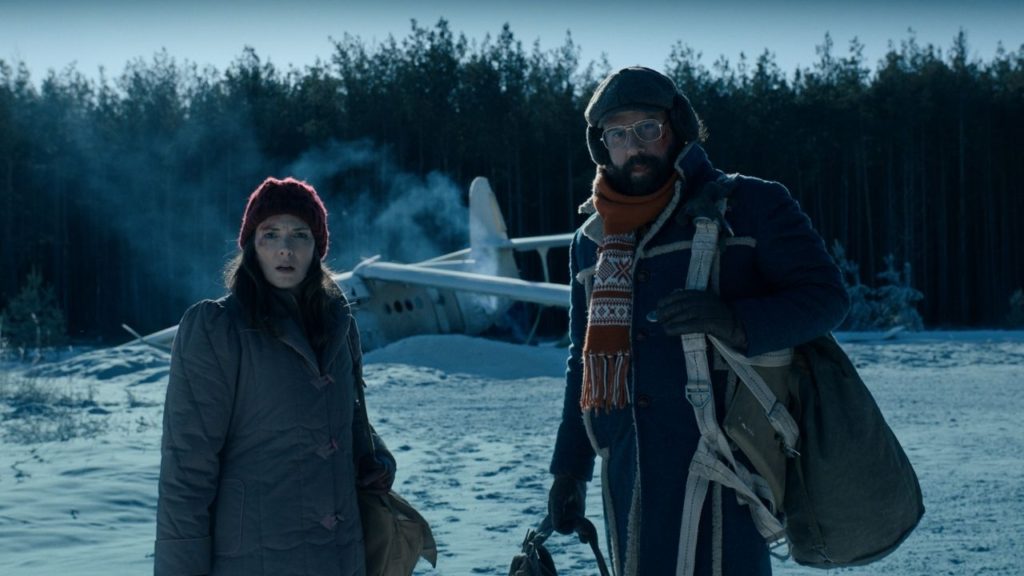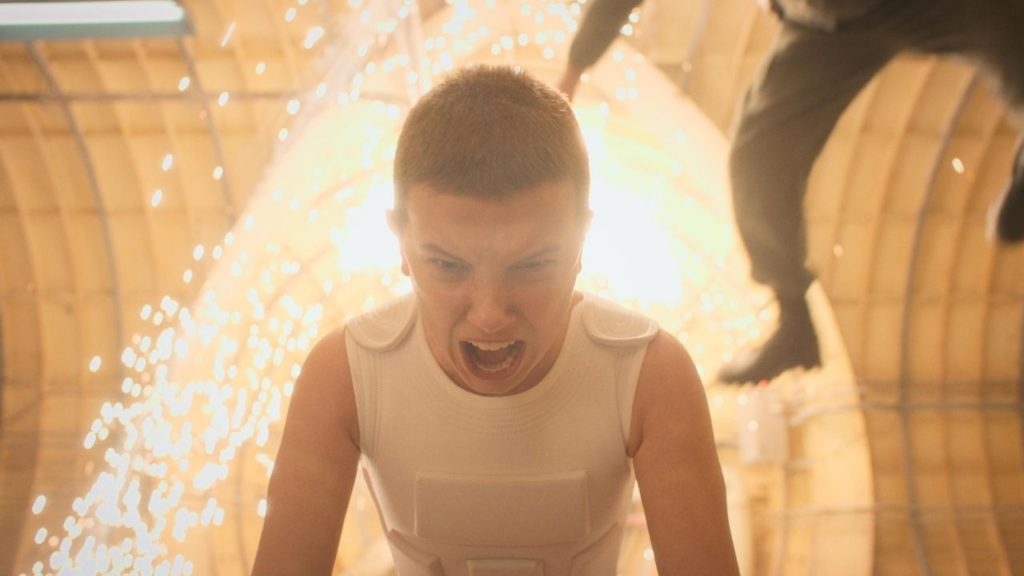The average length of a traditional season of a network television drama is about 15 hours and 24 minutes. Give or take. Here now are the runtimes for each of the seven episodes we got in Volume 1 of Stranger Things 4:
Chapter One: The Hellfire Club – 78 minutes
Chapter Two: Vecna’s Curse – 77 minutes
Chapter Three: The Monster and the Superhero – 64 minutes
Chapter Four: Dear Billy – 79 minutes
Chapter Five: The Nina Project – 76 minutes
Chapter Six: The Dive – 75 minutes
Chapter Seven: The Massacre at Hawkins Lab – 98 minutes
The final two episodes of the season (which drop on July 1), “Papa” and “The Piggyback,” boast runtimes of 85 minutes and 150 minutes, respectively. At 13 hours and 2 minutes, and with just nine “episodes,” this season of Stranger Things comes pretty damn close to having a runtime that’s on par with with that of a 22 episode season of television. To give you some further context, that final episode of the season is longer than Spider-Man: No Way Home.
Why? Why Is Every Episode So Damn Long?

We don’t claim to know, or understand, how Netflix commissions their shows, and there could be any number of reasons why The Duffer Brothers chose to structure these episodes in this way. It could be that they were contractually obligated to deliver just nine episodes for this season but needed to tell a 13 hour story. Maybe it was the actors’ contracts that only allowed for them to appear in a certain number of episodes. Or maybe this was a massive middle finger to the way things are “usually” done, and a strong case for simply taking the time you need, to tell your story, in the best way possible.
The problem here, however, is that Stranger Things 4 feels long. It feels flabby. There were moments when it felt like no decisions were made and no darlings were killed.
Now don’t get me wrong. This is some of the best television that Netflix has ever produced. The writing is superb. The story is compelling. And the world is immersive and engaging. But it is also symbolic of a problem that continues to plague the streamer, in that they seem to exercise little to no editorial oversight over their A-list creators. This has lead to entire seasons that have pacing issues, episodes that feel slow or inconsequential, and narratives that feel overindulgent. It is everything that falls under that catchall phrase: “Netflix Bloat.”
The Duffers are incredibly brilliant at what they do. With Stranger Things, they have successfully created that proverbial unicorn: an original IP, with a global fanbase, and with – arguably – as much of an impact on pop culture as Marvel or Star Wars. That said, even geniuses could use a good editor.
This season is living proof that you can have too much of a good thing. We are now following at least 20 different characters, who have been split up into six distinct groups, each one on their own side quest. We cut back and forth between all of them, and while none of it is particularly bad, it nevertheless feels overwrought. There are new characters that feel unnecessary. Road trips that didn’t need to be taken. And even an exploration of trauma (with a cleverly executed twist) that could have been more succinct.
In fact, there is only one moment throughout this first volume that manages to channel the nostalgia and joy of the show’s earliest episodes. Towards the end of the first episode (which happens one of the best season openers in recent history, and probably the tightest episode in this batch), The Duffers cut between a basketball game and a session of Dungeons & Dragons. It is a fantastic moment of television, with a palpable tension, and pitch perfect pacing. Alas, there was nothing that came after that could recapture that energy.
A Missed Opportunity

I have always believed that the method of delivery greatly affects your experience of the show you are watching. Some shows work best when they are binged. Others require the time and the space offered by that weeklong wait between episodes.
In its current form, Stranger Things 4 might have worked better as a week on week drop. (Hell, if you watched it week on week, you would still get to “Chapter 6” on July 1 when Volume 2 is scheduled to premiere.) Not having the pressure of having to finish these seven episodes as quickly as possible (mostly in fear of having them spoiled by assholes on the Internet), and having them arrive in more digestible chunks, might go a long way in making these overlong episodes a lot more agreeable to our overstimulated palate.
It is a missed opportunity. And one Netflix would have noticed had they cared a little more about how we consumed their content.
Watching these episodes as they are requires you to rewire your brain. For the longest time, we had been conditioned to think in terms of 42 minute dramas and 21 minute comedies. Then Netflix came along and introduced the binge. There is a Malay word that perfectly describes Stranger Things 4, and it is “jelak.” In one sense, the word is defined merely as “bored.” Another definition, which doesn’t quite have an English equivalent, is best described as that cloying feel you get when you’ve had too much of a good thing.









Follow Us